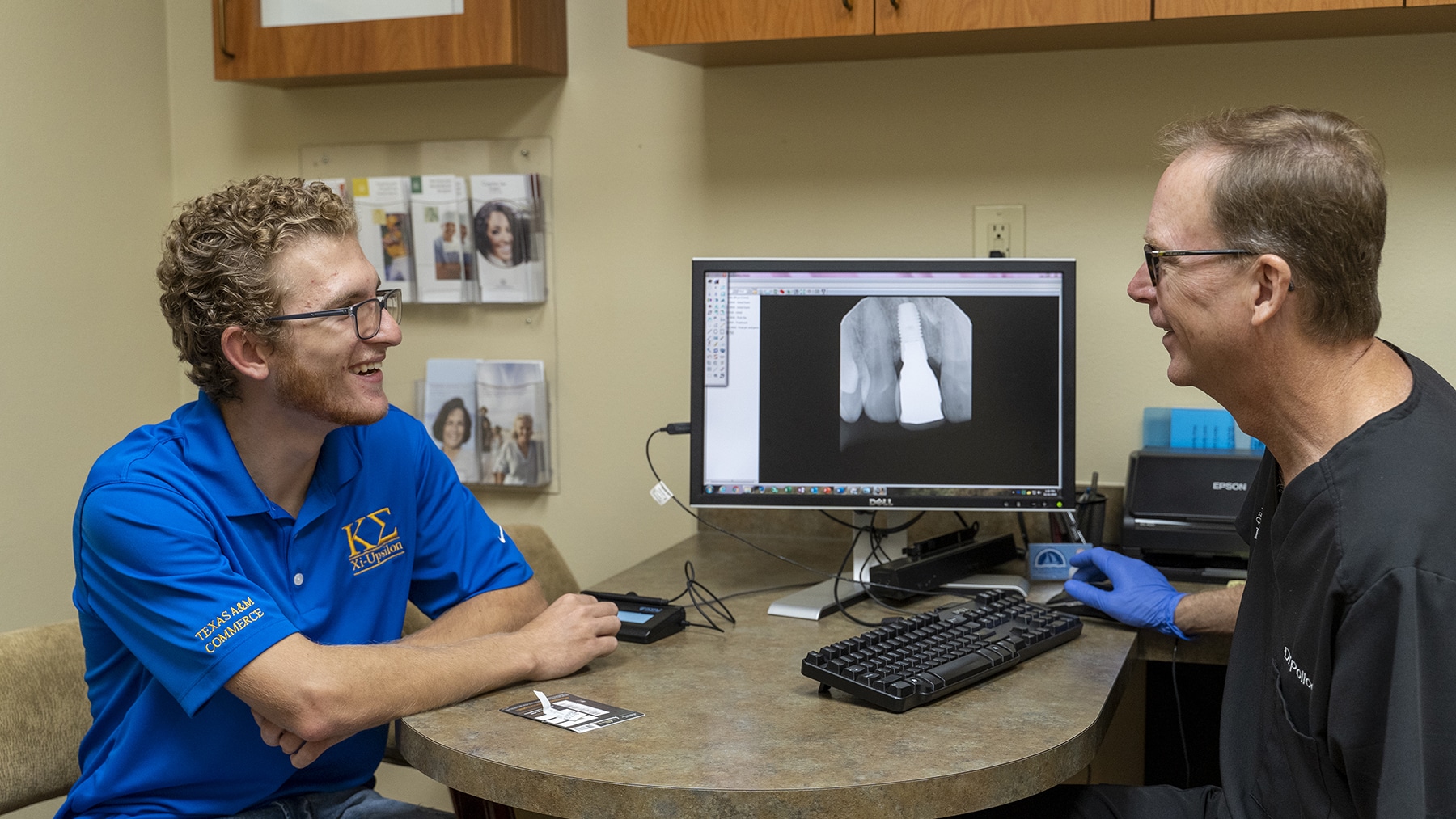Dr. Pollock’s experience and oral surgery results make him a top OMS referral in the Rockwall area.
# Oral Surgery
More Information:
- Dental Trauma
- Dental Implants
- Tooth Extractions
- Wisdom Teeth Removal
- All-on-4® Treatment Concept
- Teeth in a Day (One Day Smile)
- Full Mouth Reconstruction
- Orthognathic Surgery
- Sedation Options
- Oral Pathology
- Bone Grafts
ORAL SURGERY
At Rockwall Oral Surgery, we specialize in oral surgery. Oral surgery is a broad category, treating a wide spectrum of defects, injuries and diseases in and around the mouth, the jaw, the head and the neck. We offer a wide variety of oral surgical procedures that restore health, function, and aesthetics to your face and mouth.
Schedule Your Consultation Today!
Whether you need a tooth extracted, or you need reconstructive surgery for facial trauma, we can help. Contact Rockwall Oral Surgery today at (469)757-4433 to learn how!
Oral Surgery
There are many reasons for oral surgery and it is best to work with a trusted Oral Maxillofacial Surgeon for these procedures.
Impacted Teeth
Your wisdom teeth, or third molars, are the last to erupt, and the most likely to become impacted. An impacted tooth is one that doesn’t fully emerge, or emerge at all, through the gum tissue. They can become impacted because you lack sufficient space, or because the teeth are growing sideways. They tend to cause severe pain, and can even compromise the health of adjacent teeth. Removing your wisdom teeth is the only way to deal with them.
Wisdom teeth are not the only ones that can become impacted. The maxillary canines are the second most likely to face this issue. There are treatments that can help these essential teeth to come in and take their proper place.
Bone Grafting
Losing bone mass in your jaw can have serious consequences on your oral health, and your appearance. Mass can be lost for a variety of reasons—tooth loss, gum disease, injury, osteoporosis. When you lose mass, your teeth may become loose, shift in your mouth (throwing off your bite) and fall out. A bone graft restores lost mass. We use some of your bone mass or a bone graft substitute, and place it in the areas that are weak. As you heal, your bone fuses with the new mass, restoring strength to your jaw, and helping to fix its appearance.
Tooth Extractions
There are some reasons a tooth may need to be extracted—impaction, severe gum disease, significant damage that cannot be restored with a crown. When a tooth cannot be saved, it must be extracted.
There are two types of extractions—simple and surgical. A simple extraction involves widening the socket to pull the tooth free. A surgical extraction is a more involved procedure. We make incisions in the jaw to expose the root and the bone. The tooth can then be freed from whatever is blocking it. In some instances, the tooth may first need to be broken to remove it completely.
Dental Implants
When you have been faced with tooth loss, your entire life is affected. Even the loss of a single tooth can have a major impact. There are many replacement options available, but none like dental implants. With a surgical procedure, titanium rods are implanted into your jaw and act as a tooth root. When you have healed, your new crown, or crowns, are secured to the rods, providing you with new, permanent teeth.
Facial Trauma
Facial trauma can be in the form of soft tissue injuries, bone injuries or avulsed teeth. It requires a skilled professional in oral and maxillofacial surgery, with an extensive knowledge of the makeup of the structures in and around your mouth. We can help to heal your injuries, whether they are lacerations or fractured bones, and provide you with the best aesthetic and functional outcome.
Oral Pathology
Oral pathology involves the different diagnosis diseases that affect the mouth, including oral cancer. In many cases, a biopsy needs to be performed to confirm or rule out certain diagnoses. For a biopsy, we remove a small section of the oddity in your mouth for further investigation under a microscope. Once a diagnosis has been made, treatment can begin.




